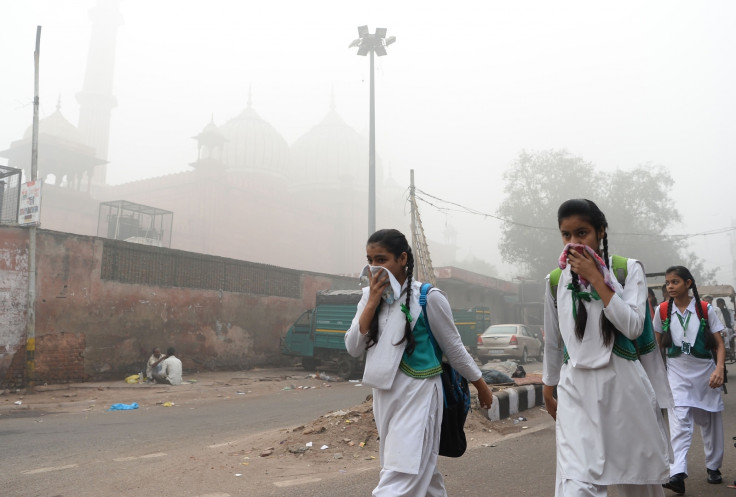Delhi smog not 'emergency' like Bhopal gas tragedy that killed over 20,000, says Indian minister
The environment minister claimed that the Indian capital's smog issue is not an "emergency" despite the city's 'hazardous' air pollution levels last week.
India's capital Delhi was shrouded in a thick blanket of fog earlier this month, but the country's environment minister is attempting to play down the issue, claiming there is "no need to panic". Dr Harsh Vardhan, in an interview with CNN-18, used the disastrous Bhopal gas tragedy of 1984 to make his point.
Air pollution levels in the north Indian city reached the 'hazardous' level on 6 November – nearly 30 times the World Health Organization's safe level – before falling to 'severe' and 'very poor' this week, with the Indian Medical Association (IMA) declaring a public health emergency.
Despite the air quality falling to levels 10 times worse than those in Beijing, which is known for its smog issues, the environment minister insisted that it was not an "emergency".
"I am talking in practical terms. You see what happened in Bhopal when there was a gas leak and hundreds of thousands of people fell acutely sick and had to be rushed to the hospital," he said, referring to the industrial disaster at the Union Carbide India Limited (UCIL) pesticide plant in the central Indian state of Madhya Pradesh over 30 years ago that caused around 20,000 deaths.
"We call that an emergency situation where you have to panic and you have to see what you have to do. I'm not saying we shouldn't do anything about it (Delhi smog); everyone has to respond to what he is supposed to do. But there is no need to spread panic among the people," he explained.
Although Vardhan acknowledged that smog is "detrimental" to one's health, he also mentioned that "no death certificate has the cause of death as pollution".
"There is no cause for anybody to spread panic about the whole issue," he said. "All I am saying is that there is no need to frighten people."

While people criticised the 62-year-old – who is also the minister of science, technology and climate change – for his comments, there also seems to be a political angle to what he said. By mentioning the Bhopal incident, the Bharat Janta Party (BJP) member took a subtle jibe at the opposing Congress National Party (CNP) for taking extremely weak action against the parent company, US-based Union Carbide Corporation.
The CNP was blamed for allowing the main accused, CEO Warren Anderson, to escape after reportedly being pressured by the US.
What is the Bhopal Gas Tragedy of 1984?
Late on 2 December, 1984, a large amount of methyl isocyanate (MIC) gas and other toxic chemicals leaked out of the Union Carbide India Limited pesticide plant in Bhopal, exposing over 500,000 to the poison.
Hundreds of thousands of people were left with debilitating diseases in the wake of the tragedy and it is estimated that 20,000 died as a result of the leak. Many within the impact zone were diagnosed with pulmonary fibrosis, aggravation of TB, chronic bronchitis, heart conditions, eye infections, impairment of memory, loss of finer motor skills and reproductive issues.
The castastrophy is recognised as the world's worst industrial disaster, ever.
The poison also caused genetic problems that researchers continue to identify in the region's population, three decades after the incident.
Union Carbide, which is now owned by the Dow Chemical Company, insisted that the tragedy was a result of "disgruntled employee sabotage".
In 1989, Union Carbide agreed to pay US$470m (£356m) for damages caused in the Bhopal disaster and funded a hospital to treat the victims.
Numerous cases of negligence were filed in India and the US against employees of Union Carbide, but were subsequently dismissed.






















